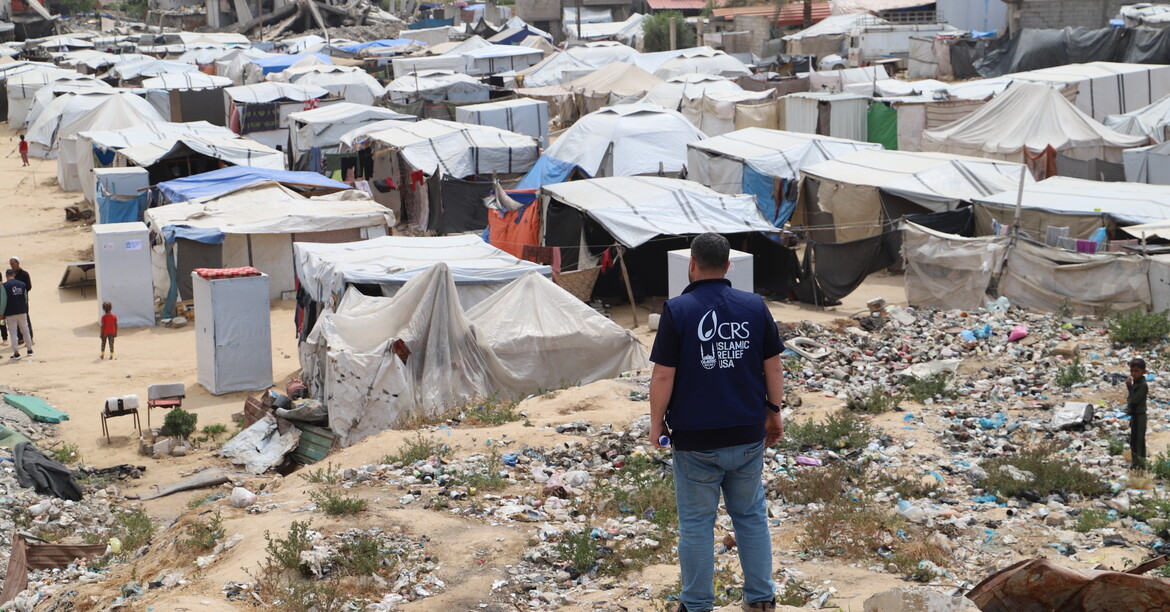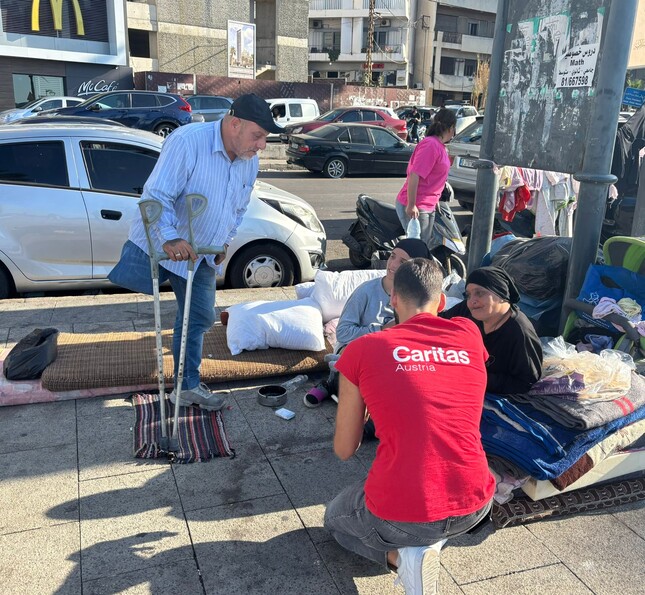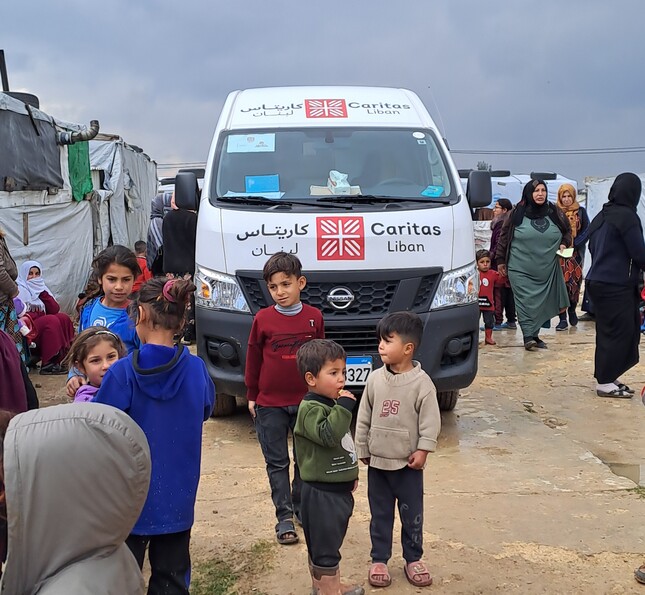
Middle East: The Daily Struggle for Survival
In 2024, wars and conflicts in parts of the Middle East once again had devastating consequences for civilians. Working with local partners — often under extremely challenging conditions — Caritas provided critical humanitarian assistance and continues to respond on the ground. (Note: This text was written in February 2025 and reflects events and data available up to that time.)
In the Gaza Strip, nearly the entire population — over 1.9 million people as of February 2025 — has been displaced. Relief efforts continue under the harshest circumstances. Wherever possible, Caritas supports local partners in delivering cash assistance, essential supplies, medical care, shelter materials, and winter supplies such as blankets, mattresses, tents, and tarpaulins. The aid also includes emergency shelters, food, hygiene items, and psychosocial support.
By February 2025, more than 1.2 million people in Lebanon had been forced to flee their homes, with many living in tents or on the streets. Schools served as emergency shelters, while electricity and water supplies remained unreliable, and access to healthcare was still severely limited. In 2024, alongside its long-term support in healthcare, education, and social protection, Caritas Austria also prioritized life-saving emergency aid: clean water, food, medicine, and safe shelter.
In Syria, the fall of the government at the end of 2024 ushered in a new phase of uncertainty, marked by a precarious supply situation — electricity only for a few hours a day, and severe shortages of food and medical care. Despite extremely challenging conditions, our local partners are working to ensure access to basic services, education, protection, food security, and livelihoods.


Interview: "A Return to Normalcy Remains a Distant Prospect"
Note: This interview was conducted in February 2025. It reflects the circumstances and events of 2024 and early 2025 only, and does not account for any developments thereafter.
Syria and Lebanon. The conflict in the Middle East calls for Caritas' continued commitment. In both Lebanon and Syria, daily life is marked by uncertainty and a lack of basic services, leaving communities dependent on humanitarian assistance. In this interview, Aglaia D'Aligny, our Lebanon delegate in 2024, and Rick Jones, program manager in Syria, share firsthand insights into life on the ground and Caritas' vital response.
A ceasefire is in place in Lebanon. What does daily life look like right now?
Aglaia D’Aligny: The humanitarian situation remains tense, as the ceasefire is not fully observed. Many people cannot return to their homes — whether destroyed or still unsafe. Numerous hospitals are either damaged or overwhelmed, and there is a critical shortage of clean water, food, and electricity. For many, a return to normalcy remains a distant prospect.
Where is assistance needed most?
Aglaia D’Aligny: The biggest challenges are supporting affected and still-displaced people, and rebuilding essential infrastructure.
How does Caritas help?
Aglaia D’Aligny: Caritas provides medical care. Children affected by the conflict receive psychosocial support, while children with disabilities gain access to education and therapy. We also offer safe shelter and legal assistance to those in need of protection.
In late 2024, the government in Syria was overthrown. How are people managing there?
Rick Jones: Assad may be gone, but the situation remains unstable. Infrastructure has collapsed, limits on cash withdrawals make buying food difficult, and people are going hungry. Electricity and water are scarce, while crime and violence are rampant. Over a million returnees from inside Syria and abroad struggle to access even the most basic supplies.
What are the biggest challenges?
Rick Jones: An estimated 90% of the Syrian population needs humanitarian assistance, and nearly half of all children are out of school. Despite these overwhelming needs, humanitarian aid and the rules-based international order are increasingly under pressure from countries in the Global North.
How is Caritas assisting people in Syria?
Rick Jones: We enable families to meet their own basic needs — by offering cash assistance for essentials like food and heating supplies. We also support them in claiming their rights, accessing healthcare and education, rebuilding small businesses, and helping farmers recover. At a time when international solidarity with the most vulnerable is eroding, our support is needed more than ever.
